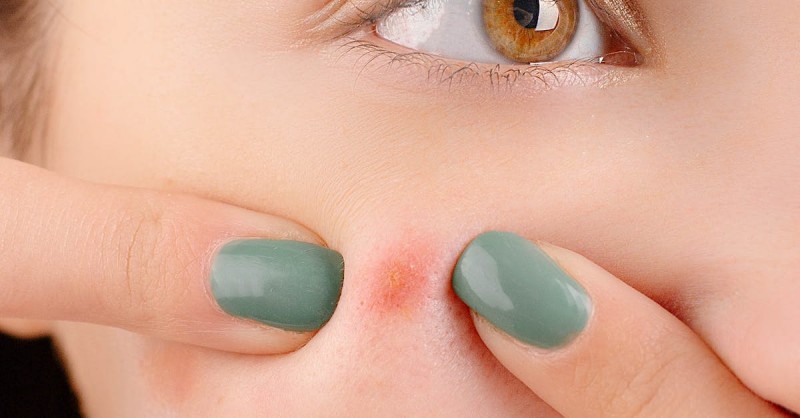
Acne is a common skin condition that often begins during adolescence due to hormonal changes. Although it typically resolves with age, this is not always the case for everyone. Sometimes, acne can indicate underlying health issues. If you frequently experience unexplained acne, consulting a dermatologist before using any creams or face washes is advisable. This approach helps identify the root cause and find an effective solution.
Why Does Acne Occur?
Acne is not just a skin problem; it often signals other health conditions. The primary cause is the blockage of skin pores by excess sebum (oil), dirt, and dead skin cells. This blockage can lead to various types of acne, including pimples, blackheads, and whiteheads. People with oily and sensitive skin are more prone to acne. Other factors contributing to acne include hormonal changes, digestive issues, stress, dandruff, bacterial infections, polycystic ovary syndrome (PCOS), thyroid disorders, and genetic factors. Additionally, a diet high in fried or sugary foods, increased insulin levels, or excess estrogen can also trigger acne. Different types of acne on various facial areas can indicate specific health issues.
Acne on Different Parts of the Face and Body
Forehead Acne:
Acne on the forehead may be linked to digestive issues, an imbalanced diet, insufficient sleep, and high stress levels. Dandruff in the hair can also contribute to forehead acne. Additionally, the use of certain creams, oils, or hair dyes can exacerbate this problem.
Cheek Acne:
People who frequently hold their phone to their ear may develop acne on their cheeks. Acne can also result from not changing pillowcases regularly, as phones and pillowcases can harbor bacteria that lead to infections.
Jawline Acne:
Many women experience acne around the jawline before their menstrual period. Other contributing factors include poor digestion, weak digestive health, and frequent touching of the face. Hormonal contraceptives and certain medications can also cause acne in this area.
Nose Pimples:
People with combination skin often face acne on the nose. The T-zone (forehead and nose) tends to be oilier, making it more prone to acne. Conditions such as high blood pressure or liver diseases can also cause pimples on the nose.
Neck Acne:
Acne on the neck can result from hormonal imbalances, poor blood circulation, high stress levels, or heart-related issues. Some people might develop neck acne from wearing artificial jewelry like chains or necklaces. Additionally, certain creams, oils, or soaps can trigger rashes and acne in this area.
Effective Ways to Prevent and Manage Acne
Maintain Hair Hygiene:
Dandruff can aggravate acne because it affects oil glands. Ensure regular hair washing to prevent dandruff and reduce acne.
Monitor Your Diet:
Consumption of dairy products like milk and ghee, or excessive sugar can worsen acne. Limit intake of these foods to manage acne more effectively.
Wear Comfortable Clothing:
Tight clothing can impede blood flow, leading to rashes and acne. Opt for loose-fitting clothes to avoid such issues.
Nutritional Intake:
Include foods rich in avocado, nuts, omega-3 fatty acids, junk food alternatives, and vitamin C in your diet. Limit protein intake to prevent exacerbating acne.
Gentle Cleansing:
Use a mild cleanser instead of soap to wash your face twice daily. Proper cleansing helps remove excess oil and dirt, reducing the likelihood of acne.
By understanding the causes of acne and following these expert tips, you can manage and prevent acne effectively, leading to healthier skin.
India Issues New Advisory on Mpox as Deadlier Strain Emerges
West Bengal Health Deptt Transfers Key Officials at RG Kar Medical College Amid Protests
Does Eating the Yellow Portion of an Egg Increase Cholesterol?